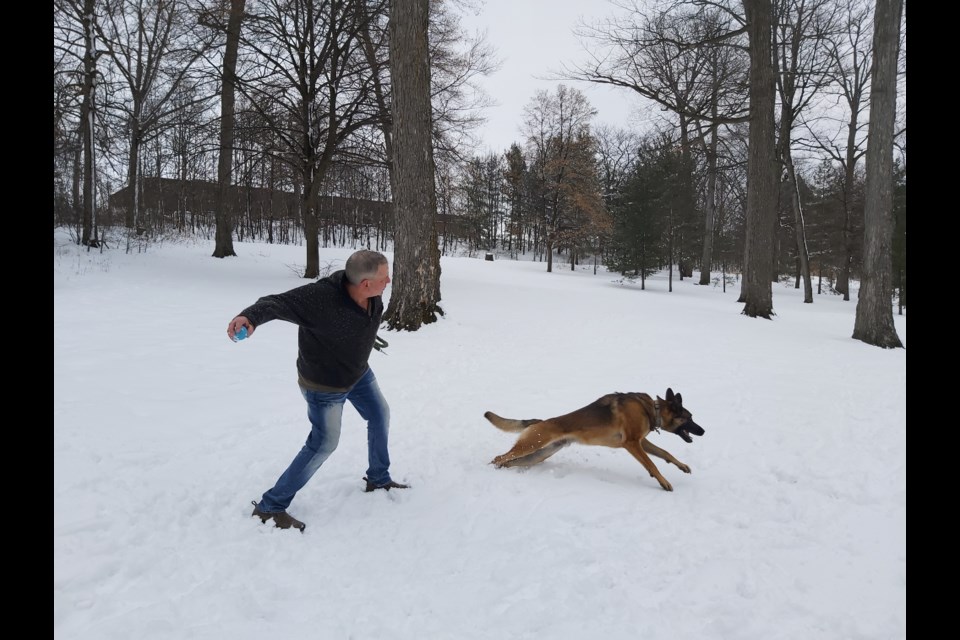One resident thinks city dog licensing fees should be used for search and rescue efforts or giving dog owners other provisions.
At its last regular meeting, council approved changes to the Licensing and Control of Dogs By-law, leading to a $5 increase in annual dog license fees, which had been $15 for the last decade.
"I think it's (an) absolute money grab," said Midland's Tracy Johns, of the town-issued dog license. "We've fostered seven animals from the humane society and we're on our last dog, Chloe. We've always been responsible pet owners. We make sure their vaccines are up-to-date in case anything ever happens."
What would they give dog owners in return for the fee, she asked.
At the council meeting, Coun. Bill Gordon asked a similar question he's heard from his constituents: "Why is there a tax and where does the money go?”
Amanpreet Sidhu, the town's Interim Chief Administrative Officer (CAO), explained the money goes toward enforcement efforts.
“Essentially, the revenue helps defray the animal control contract we have in the municipality,” he said. “We have a recovery mechanism through the dog licensing fees for that, as well as the impound fees.”
Johns said she would like to see the money put toward search and rescue services, rather than having stray dogs picked up to be euthanized.
"It would be better," she said. "Or they could put it towards providing more off-leash parks or finding animals a good home."
In an interview, Mayor Stewart Strathearn explained the changes were brought in because the town was losing money under the previous fee structure.
“It’s a service the municipality has been doing for some time. It was costing the town more to administer the dog tags,” he said. “It’s not meant to be a money-making venture, but if you’re doing it, why do it a deficit?”
Strathearn said the bylaw also helps address the matter of public safety.
“It's my understanding that the dog licensing bylaw was put into place to ensure that ... dogs received their annual shots,” said Karen Desroches, town clerk. “People are required to produce those papers to show that they’ve had their dogs vaccinated for rabies.”
Ward 2 Councillor Carole McGinn said she supported the public health reasoning behind the bylaw.
“The public health aspect is the reason why you need to have your dog licences,” she said. “There is a rule around cats and how many cats you can have.”
Strathearn said the town wants to ensure enforcement where public health and nuisance issues are concerned.“If you’re a responsible dog owner, you would have (the vaccinations) done on your own,” he noted. “Unfortunately, all of us are not responsible.”
While Johns thought the licence was a "money grab by the town", fellow pet owner Steve Allison wasn't concerned about paying to have his dogs licensed.
"I have my dog licence for all three of my dogs," he said, as he walked Duke, his 2 1/2-year-old Belgian Malinois Shepherd. "I think it's something that the city wants and it's what you do, right? It's not that expensive. It's just $20."
Allison said there are "a lot of bad dog owners, so getting licences shows they're a responsible dog owner."
